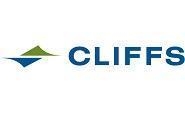Prices

February 10, 2019
Cliffs: Global Iron Ore Shortage, But No Problems at Home
Written by Sandy Williams
The recent mining disaster in Vale prompted a flurry of concern from analysts on the Cleveland Cliffs earnings call. Cleveland Cliff’s CEO Lourenco Goncalves said on Friday that the impact from the Vale mining disaster has yet to be properly quantified. Estimates of 11 million tons of capacity loss are likely to be double that, he said.
Brazil domestic mills will likely receive first consideration by Vale, leaving international markets short for iron ore shipments. Vale will not only have a shortage of iron ore but a shortage of DRI grade pellets that some countries rely on, such as the Middle East, he said. It is possible that some countries could turn to lower quality ore and sinter, but environmental regulations may make such measures prohibitive.
Premiums for 2019 were not settled prior to the incident at Vale and a “significant increase” in IODEX and pellet premiums is expected.
“Even before the horrible disaster of January 25th with Vale operations in Brazil, the expected outcome of negotiations was for a higher pellet premium than the $67.50 reported by Platts in January,” said Goncalves. “The full impact to the iron ore market of the catastrophic events with Vale has not been properly quantified yet. Once that happens, we expect both IODEX and pellet premiums to increase further and this increase should be significant.”
Cleveland Cliffs pricing is based on North American hot rolled prices and the Atlantic basin pellet premium and has little to do with the Vale’s pricing, said Goncalves.
In outlook remarks, Cleveland Cliffs said the following regarding pricing and revenue for the company:
“Based on the assumption that iron ore prices ($76 per metric ton), steel prices ($694 per short ton), and pellet premiums ($67.50 per metric ton) will average for the remainder of 2019 their respective January averages, Cliffs would realize Mining and Pelletizing revenue rates in the range of $102 to $107 per long ton. Performing the same analysis using spot prices as of Feb. 7, 2019, namely an iron ore price of $90.50 per metric ton, a steel price of $683 per short ton, and a pellet premium of $67.50 per metric ton, Cliffs would expect to realize Mining and Pelletizing revenue rates in the range of $111 to $116 per long ton for the full-year 2019.”
Following the Samarco disaster three years ago, Cleveland Cliffs conducted a thorough assessment if its own operations in the United States and made some improvements. The review of mining operations in Brazil was not nearly as thorough, said Goncalves, and may have led to the most recent disaster at Feijao. New evacuations of mining communities were announced Friday morning by Vale and ArcelorMittal as precautionary measures.
Goncalves does not expect any shortages in the United States as Cleveland Cliffs is the supplier to domestic steel mills. Recent announcements of steel capacity additions have prompted Cliffs to increase the capacity at its HBI mill currently under construction in Toledo, Ohio. HBI capacity will increase from 1.6 million metric tons per year to 1.9 million tons. The changes to equipment will require a total spend of $830 million compared to $700 million originally budgeted. Interest in contracting for the pellets has been high from both long-time customers and new EAFs coming online, he said.
Cliffs is also considering reopening its idled Empire Mine to increase pellet output. Redirecting DR-grade pellets to the HBI facility will leave a shortage of pellets for blast furnace customers. Restarting Empire would fill that hole, said Goncalves. Permits are in place and Cliffs expects to make an announcement soon. Reopening the mine would require a capex investment of about $600 million over three years. Three years of digging would be required before reaching the ore necessary for pellet production. Production capacity at Empire is estimated between 3.2 million and 3.5 million long tons per year.
Another potential area of expansion is Nashwauk, said Goncalves. Cliffs owns half of the land of the iron ore pit as well most of the surrounding land. Goncalves referred to his competition there as a “virus that has been infecting Minnesota.” He added: “As soon as this virus is eradicated from Minnesota, we are ready to step in to take care of Nashwauk.”
Iron ore shipments of 500,000 tons were delayed in late October and early November by gale force winds on the Great Lakes. Vessels were unable to dock and unload due to weather conditions and were forced to wait out the storms in deep waters. Favorable weather in early January allowed 150,000 tons of the pellets to be delivered, and the rest will be absorbed in the expected 20 million tons of shipments for 2019, and at higher prices.
“That’s the beauty about pellets,” said Goncalves. “They don’t deteriorate. So, we could not ship in 2018, but we ship in 2019. The only difference is they will cost a little more, but the clients can pay. They’re in good shape. They will increase steel prices, so they’re making a lot of money, and we are going to make money as well.”







